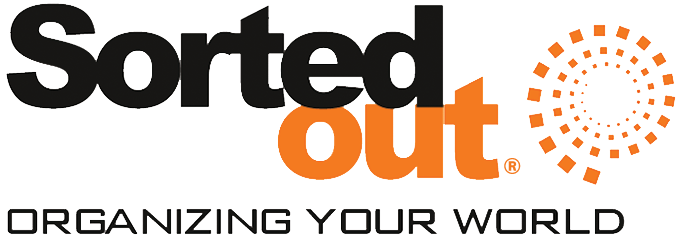Perfectionism in the Workplace
When we hear the word “perfect”, we often consider it a compliment. However, perfectionism in the workplace is often a hinderance. Are there benefits to someone striving for the goal of perfection in their career? Absolutely! But there are also many dangers of perfectionism and warning signs to keep an eye out for so you don’t burn out in the process of trying to achieve that elusive “perfect”. Keep reading if you’re curious about the good, the bad, and the ugly as far as perfectionism in the workplace and if you want to know our experts’ tools for avoiding the dangers and capitalizing on your strengths!
Unobtainable Expectations are Unforgiving
There is a difference between high expectations and unobtainable expectations. There is nothing wrong with holding yourself, your staff, and your business to high expectations. But ensure your expectations are high and obtainable. If your expectations are too high and unrealistic they may be impossible to achieve. People with unrealistic expectations in the workplace will often beat themselves up about things that need to be “perfect”. This is ultimately a harmful thought process because it often leads to procrastination born from fear that they will not be able to meet their own high standards. Overly high expectations can cause (unnecessary) increased levels of stress and anxiety. If stress and fear of not meeting a high expectation causes procrastination or delays completing tasks, important deadlines can be missed. (Which then only leads to more stress and anxiety!)
Unobtainable expectations are even more harmful for folks with ADHD. Those with ADHD will hyper-focus on tasks with high expectations which then puts them at risk of getting stuck on those tasks. For these individuals, the burden of the high expectation means the task may ultimately end up not being completed in time (or at all).
The Harm of Being Highly Critical
Those striving for perfection at work are often highly critical individuals. For perfectionists, they are highly critical of most things, but especially of themselves. This is a problem when it comes time to receive feedback. Because they believe most forms of feedback are critical, it often leads them to become defensive when given feedback. Feedback is one of the most important aspects of any professional business relationship; knowing how to both give and receive feedback in a non-critical way is paramount for success.
Perfectionism Produces Workaholics
The term “workaholics” isn’t uncommon in today’s world, and they are unfortunately found in most places of business. What is less commonly known is that many workaholics are simply overworking themselves trying to achieve the (very rarely reached) “perfect” result. Working excessive hours and constantly putting in the added effort to meet their own expectations and high/unobtainable standards often leads workaholics to burn out. These individuals waste more time on things than they should because they’re striving to make each task perfect. Their over-exertion on tasks can also lead to a standstill if they spend too long on something or subconsciously fail to finish a task because it’s never perfectly complete in their mind.
Career Progression is Impacted
Being a perfectionist can ultimately hinder long-term career growth, even if they produce excellent results in the short term. Perfectionists tend to micromanage due to their difficulty trusting others to step up and meet their standards. This can lead to strained and/or tense relationships at work. They also might struggle with taking on new challenges or stepping outside of their comfort zone. As mentioned, if you’re highly critical you often can’t take feedback or criticism well. If you’re striving for perfection and see criticism as a personal failure as opposed to a chance for growth it makes you an unappealing candidate for promotion over someone that will use feedback to improve.
How To Overcome and Use Perfectionism to Your Benefit
Now, if you have read any of the above and thought, “uh oh…I can relate…” don’t worry! There are positive effects of striving for perfection as well! If you’re a perfectionist, you undoubtedly produce exceptionally high-quality work! You likely pay close attention to details and are meticulous in carrying out your duties correctly and accurately. As someone that sets high standards for themselves, you are also likely to naturally seek improvement and strive for excellence in everything you do. Perfectionists are self-motivated to be the best and achieve their goals. These are great qualities to have in the workplace! You simply need to know how to make these positive effects outweigh the natural negatives of perfectionism.
You want to be perfect. Understood! (Who doesn’t?!) But you also need to always keep room in your brain for the reminder that “perfect” is an unobtainable construct. Use every opportunity you can to view your mistakes as learning experiences and use them as fuel to improve. Creating growth from mistakes and feedback is the best way to get yourself closer to the “perfection” you strive for. Remind yourself that being “perfect” is not necessary, but mistakes are stepping stones to get you where you do hope to be. Ask yourself what you can learn from each mistake and then let it go before you allow it to drag down your mood and push your further from your goals.
Speaking of goals, make sure that the expectations you set for yourself are reasonable and obtainable. Do not constantly set yourself up for failure by putting unrealistically high expectations on yourself. To give yourself a better chance of reaching your own high expectations without converting into a workaholic, break tasks into smaller, more manageable steps. Limit your time on each task and/or set a timer to force yourself to take a break if you feel yourself beginning to hyper-focus on something. (Read HERE for tips to avoid procrastination if you feel anxiety-induced stalling creeping in!) Perfectionism isn’t something that you can make disappear at will, but reminding yourself to use your incredible self-motivation for your benefit, as opposed to letting it be your Achille’s heel is the key to success.
It’s easier said than done! If reading tips on productivity and success isn’t enough, or if you’re reading this and thinking, “woah this may actually be something I struggle with,” for the first time, let us help! At Sorted Out® we have certified specialists that may understand what you’re dealing with and how to tackle it better than you do! Give us a call or reach out at info@sortedout.com. Someone will get back to you immediately so you can leave this idea “perfect” in the dust and start feeling more successful at work than ever before.
Looking forward to hearing from you!
Tonia
Ready to get Organized?
Book a Call with Julie!
Request a Consultation
There are so many ways that organization can help take back a space that is overwhelming and bring it to functional!
We are excited to help start your journey to an organized and productive space.






